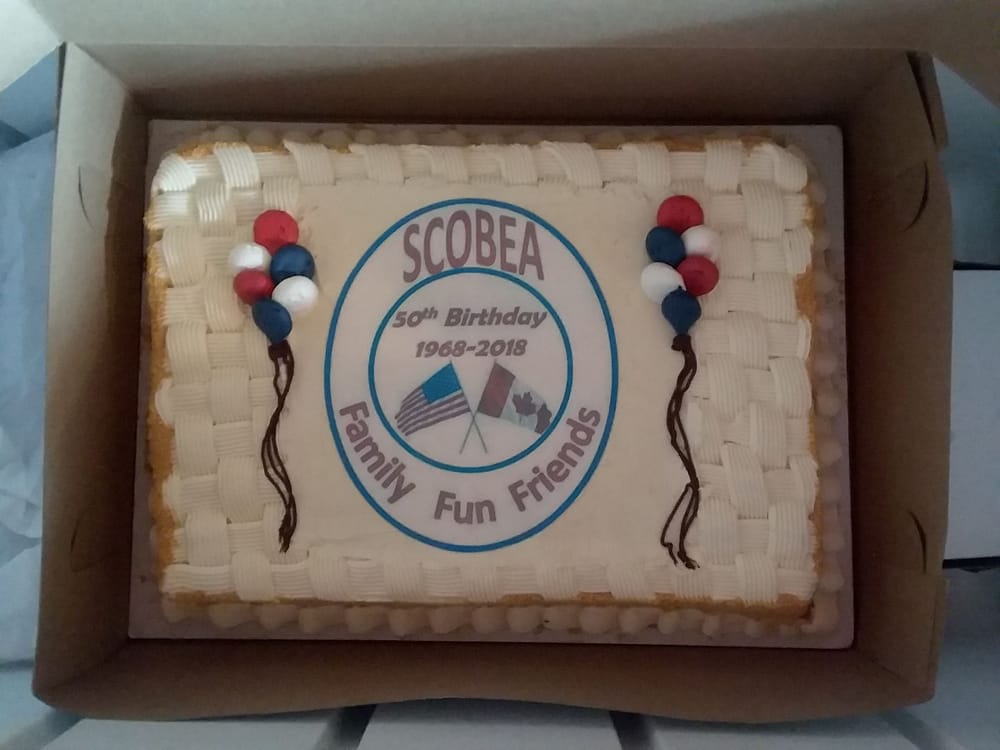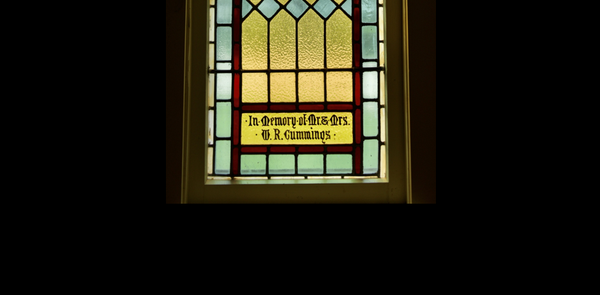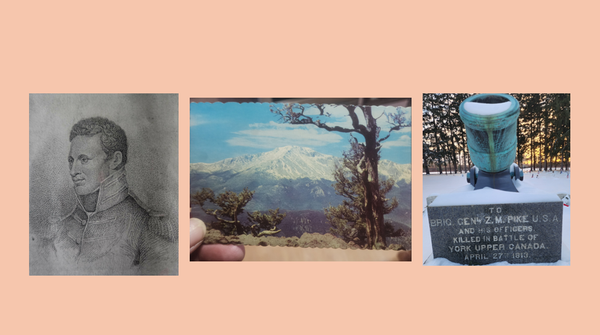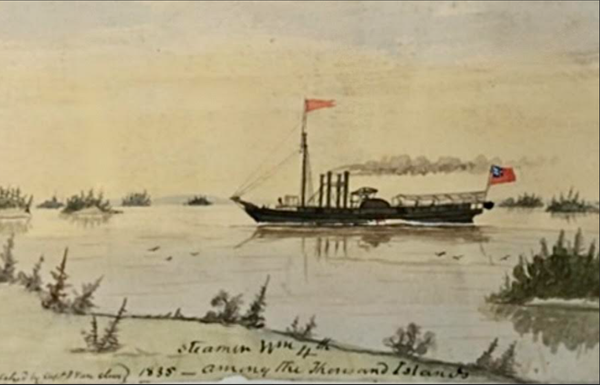Fifty Years of Memories
by: Deane C. Parkhurst
Authors Note: I was working as a DJ at a radio station in Glens Falls, NY, after discharge from the U S Army in 1959. Married in January of 1960 and just getting used to the idea of being a husband, we discovered I was also going to be a father. The small station was in serious financial trouble, and my wife and I were wondering how we could face the uncertainty of finding another position. Then a ray of hope arrived in the mail. The letter was from John Scott, Program Director at WHEN Radio in Syracuse, NY, asking if I was interested in applying for a position. I had sent out many letters seeking employment, and the one to WHEN had, thankfully, been kept on file. Wearing my best (and only) suit I drove over to Syracuse for an audition/interview and was hired that day.
What started as a Supervisor/New Guy relationship in 1960, resulted in a friendship that would last over forty years. John Scott, known at Scotty at the radio station but Skip everywhere else, and I became close friends. I had a long standing love for the Thousand Islands. Skip and his family would soon join those of us who share that affection.
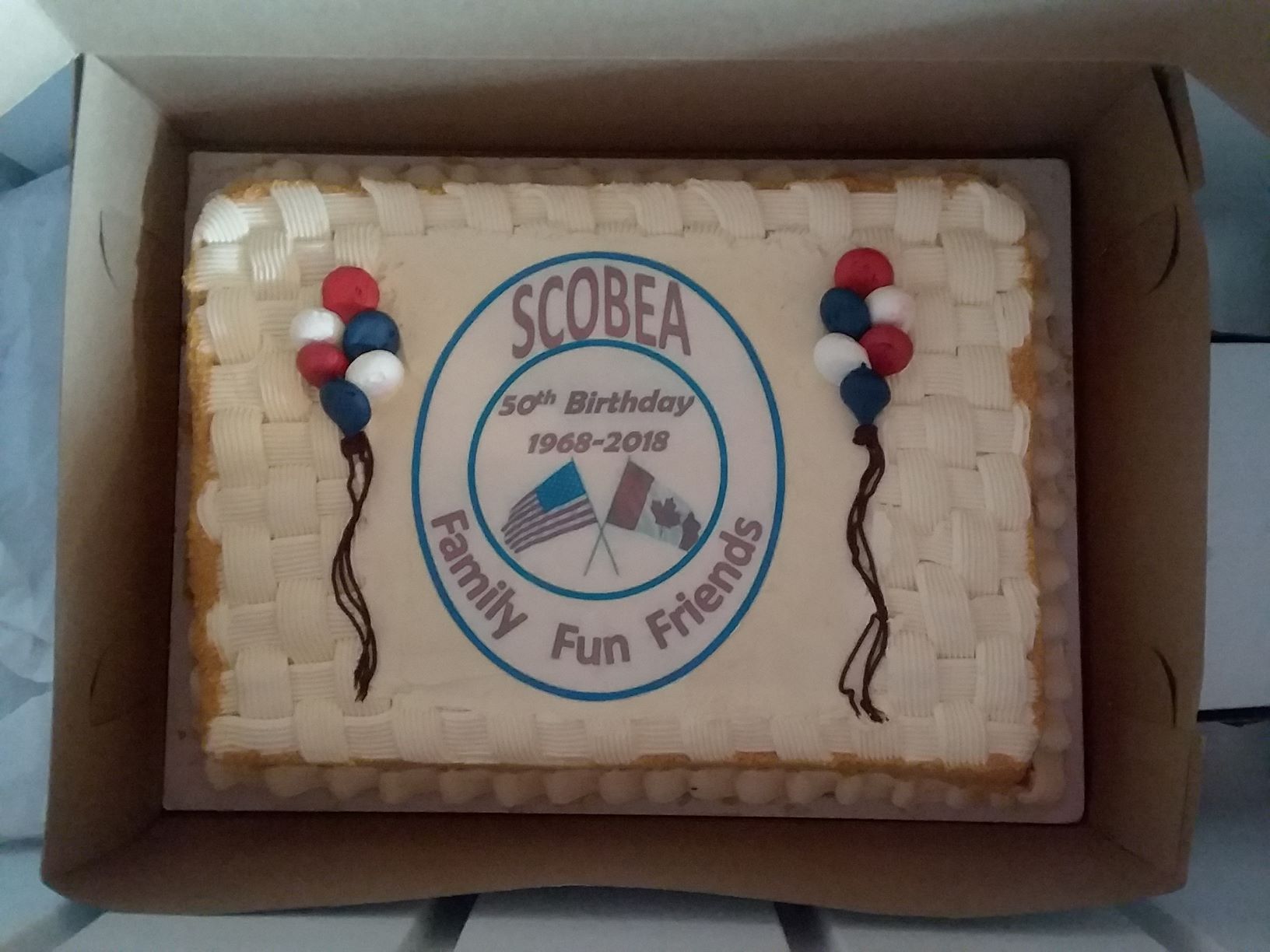
Last April I received an invitation to a fiftieth anniversary party. It was not for a long ago wedding, the event was to commemorate the day two sisters bought an island. Next to my faith in God and the love for my family, the next two things nearest to my heart are old friends and the 1000 Islands. A positive response to that invitation would fulfill those last two items and then some.
Shirley and Phyllis Sanderson were born and raised in New Hampshire and both married men in the military. Shirley would wed Richard Bean of the U S Navy; Phyllis to John Scott, U S Air Force. Years passed as both men would leave the military, settling down in two upstate New York locations. The Beans moved to Potsdam, NY, where Dick would teach at Potsdam University. The Scotts, move to Syracuse, NY, with John then employed as Program Director at WHEN Radio.
Both families would have children and both enjoyed the camping experience with the, common tow-behind trailer. They also valued the opportunity to get together as often as possible, but the question arose, where? They were looking for a location with a camp ground convenient to both families. They settled on the 1000 Islands.
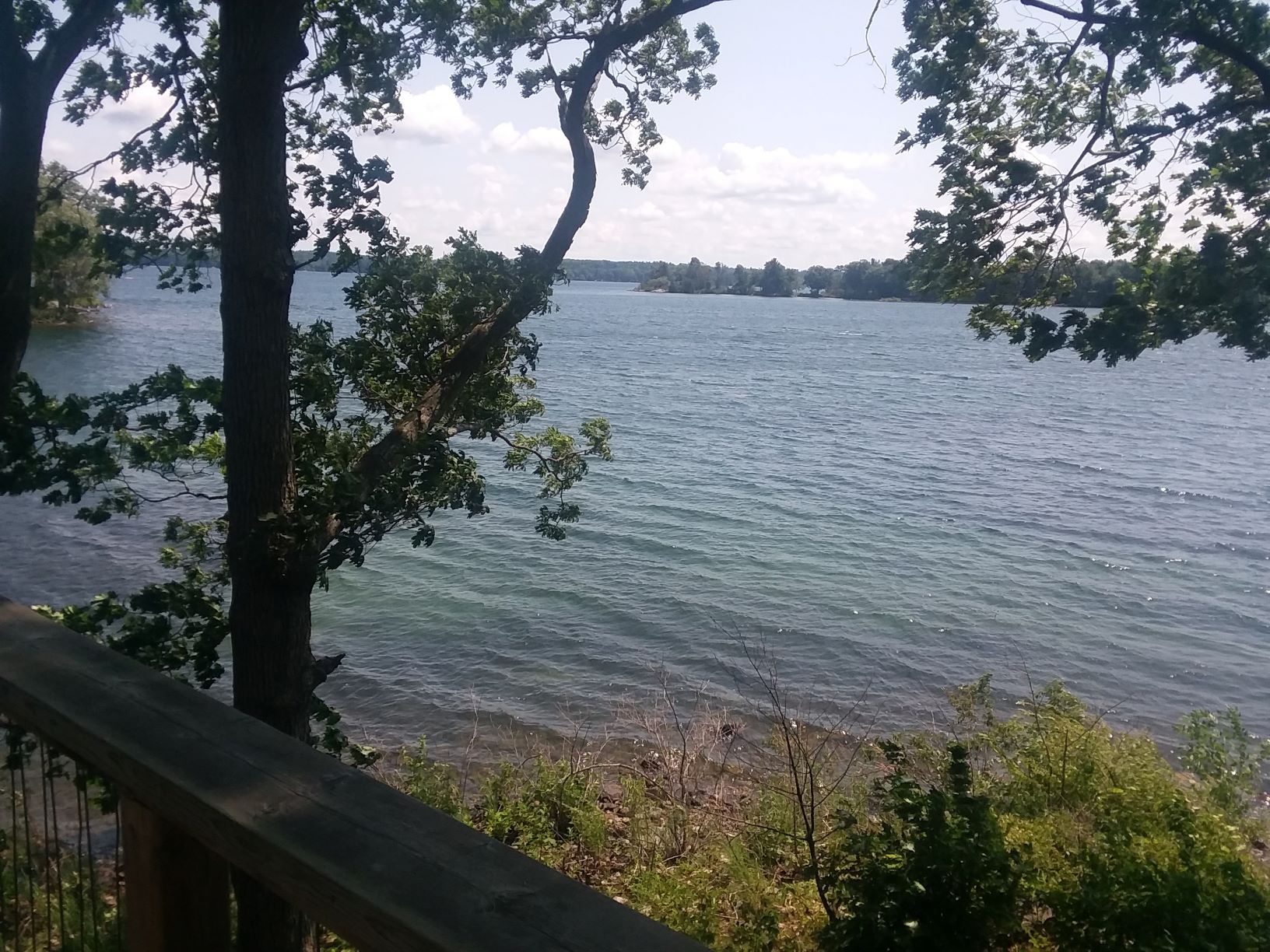
Years later Phyllis Scott would explain; “It was simply a matter of geography. Wellesley Island State Park had the facilities we were looking for and was just about equidistant between Potsdam and Syracuse.”
Only someone with a Grinch’s heart, filled with toadstools and dirty socks, could not appreciate the grandeur of the 1000 Islands. To me the attraction is akin to an addiction, the positive kind that only fosters good memories resting warmly in one’s mind. The Scott and Bean families became solidly addicted.
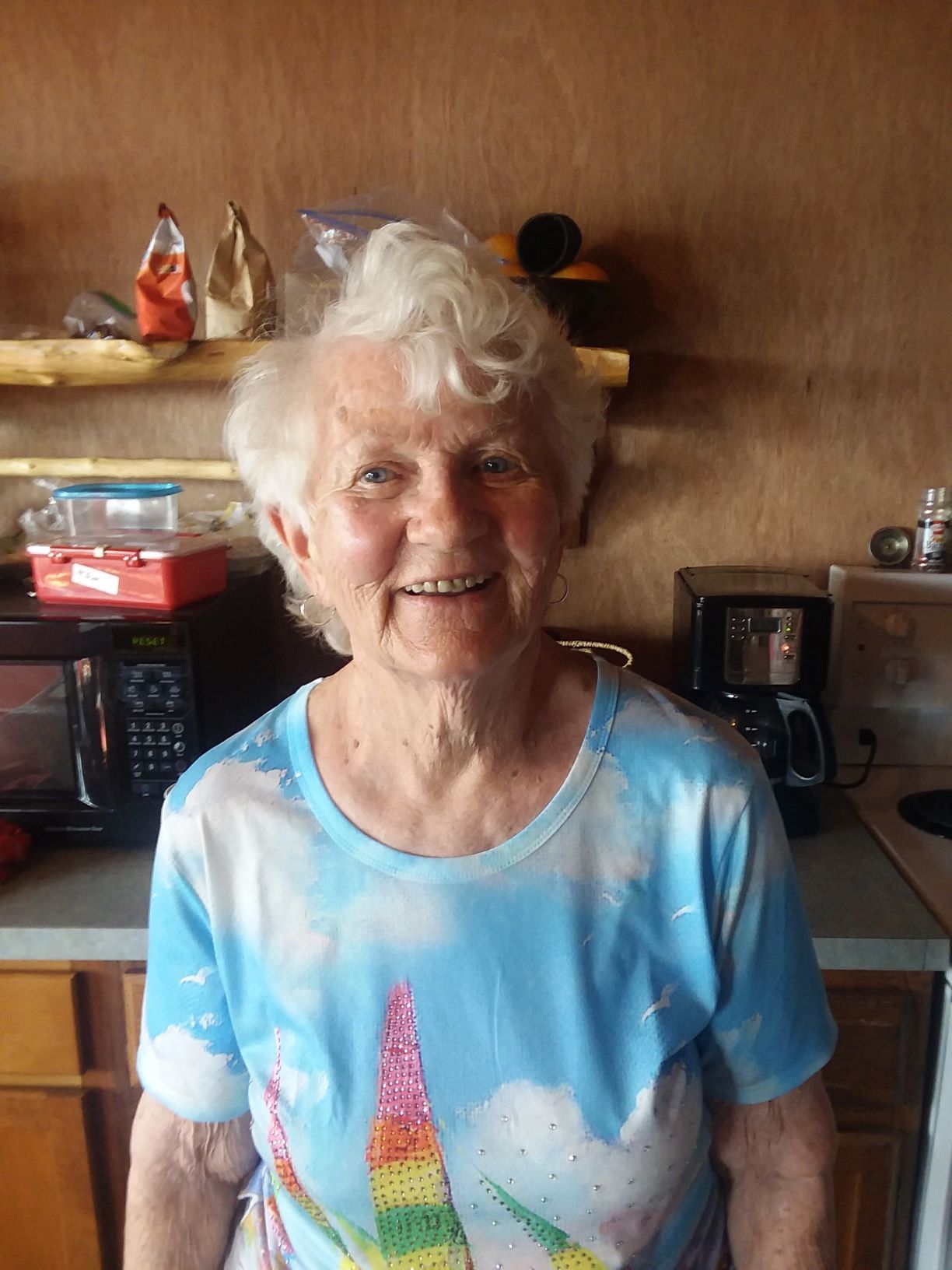
Meanwhile, back in New Hampshire, a grandmother of the Sanderson girls passed and left them a house as her legacy. Hundreds of miles away and no need for another house, a Scott/Bean family meeting followed with the decision to sell. They were able to do so faster than had been thought possible.
All the children of the two families were growing with both the Scotts and Beans thinking about larger and more stable facilities than camping trailers for their gatherings. Now there was funding for a possible solution. There were some very necessary requirements. Water front property was a must. Phyllis was adamant about one thing: “It must have a fishing rock.” The investigation began and reality set in. Water front property along the St. Lawrence was expensive. The families had funds but not the sums being asked for what suitable river front property was available. There was initial discouragement, but after several brain storming meetings, the question came up: could we buy a small island? The search took a new direction.
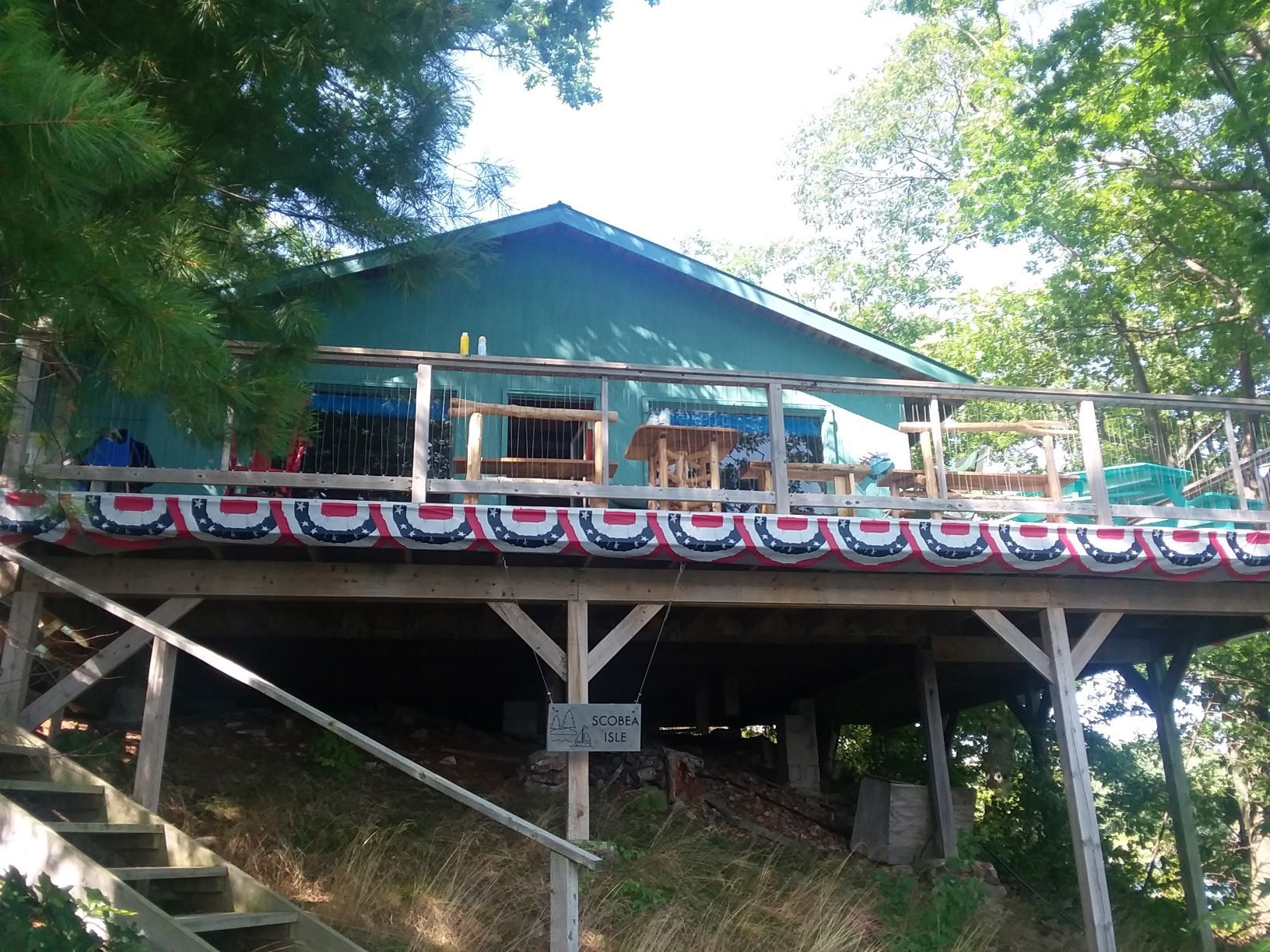
The first inquiry into island availability showed nothing in their price range on the US side of the border. The families contacted a Real Estate Agent in Gananoque and were offered several options. Some were out of their budget with others simply too small. After a few weeks came a breakthrough. One Wednesday the agent called with a new listing. A meeting was set for the following Saturday, and of course it was raining. One interesting feature of this island was that it was an island, indeed, and easily seen from the 1000 Islands Parkway. Pulling over to the shoulder of the road all eyes were on this potential location. Phyllis could not see if there was a fishing rock. Despite the rain a small boat was rented from a nearby Marina and within a few minutes of investigation the group found what Phyllis Scott was looking for; a fishing rock on the west side of the island, not visible from the mainland. Perfect.
Negotiations followed and within three weeks, the families owned an island.
Some published accounts claim there to be more than 1,800 islands in the area between Kingston and Brockville, Ontario on the Canadian side; Henderson Harbor to Morristown, New York on the United States side of the St. Lawrence. Others suggest as few as 1,600 but all agree, there are more than one thousand islands in the 1000 Islands. Susan Smith’s wonderful book “The First Summer People” details an inventory of the islands in 1873. It was followed in 1894 with a more detailed classification of the islands and a number assignment to those without known names at the time. The Scotts and the Beans had just bought Island 68-B.
The listing in “The First Summer People” states:
Island 68-B, 2/5 Acre. Value $50.00. "Covered with small Oak, Grassy, good view to the south-west."
The families paid a bit more than fifty dollars for the property but that was the 1960’s not the 1800’s. There was no question about a name; it would be called Scobea, the first three letters of both last names.
Later that year, a group of men arrived on Scobea early one Saturday morning. Skip Scott had hired the most patient building contractor in the Provence of Ontario. He had built a 24 X 24 foot foundation and platform at the highest point of the island. The arrivals on the island were a combination of friends, members of the Scott/Bean families and a young man from Morocco who was staying at our home while attending an International Broadcaster’s Conference at Syracuse University. This was the group that would build a cabin, at least the beginnings of one. The contractor would finish the project. I was a part of the gang and despite the fact that my grandfather had been a professional carpenter; I only knew which end of the hammer to hold. Others were a bit more skilled but to a man we were, at best, armatures in the field of carpentry.
Divided into two groups, one would build the roof trusses, while the rest would build walls. At the end of the day, there was the complete framework for a cabin. There were no serious injuries, only a lot of sore muscles and very tired guys who had been part of a magical experience. This was an early settler’s barn rising in modern times. We all retired to dinner at my Grandmother’s place in Thousand Island Park on Wellesley Island, then showers and bed.
A few months later the process would be repeated with a 22 X 26 cabin for the Bean family constructed just a few steps from our previous construction ‘masterpiece’ up the hill. A small outbuilding had been built containing a toilet that would serve both cabins. The necessary holding tank installed on the landward side of the island. As planned, not one mature tree was sacrificed for the construction of the two structures.
Years flew by. Kids grew up, married, had kids of their own but always Scobea was a focal point of family activity. The cabins were enlarged to include full bathrooms for both. Improved holding tanks had been installed while a pump christened “Charlie Chug” provided reliable river water for use in the cabins other than drinking.
More years passed with days of kids, fishing, swimming, kayaking and enjoying the sunny days. There was Parcheesi, Monopoly, checkers and Go Fish when in rained. There was always fun, love and friendship with the wonderful feeling of contentment that comes from being close to one of God’s great creations. My wife, Barbara, and I were a frequent part of that contentment as guests of Skip and Phyllis, watching our combined six kids enjoying just being kids.
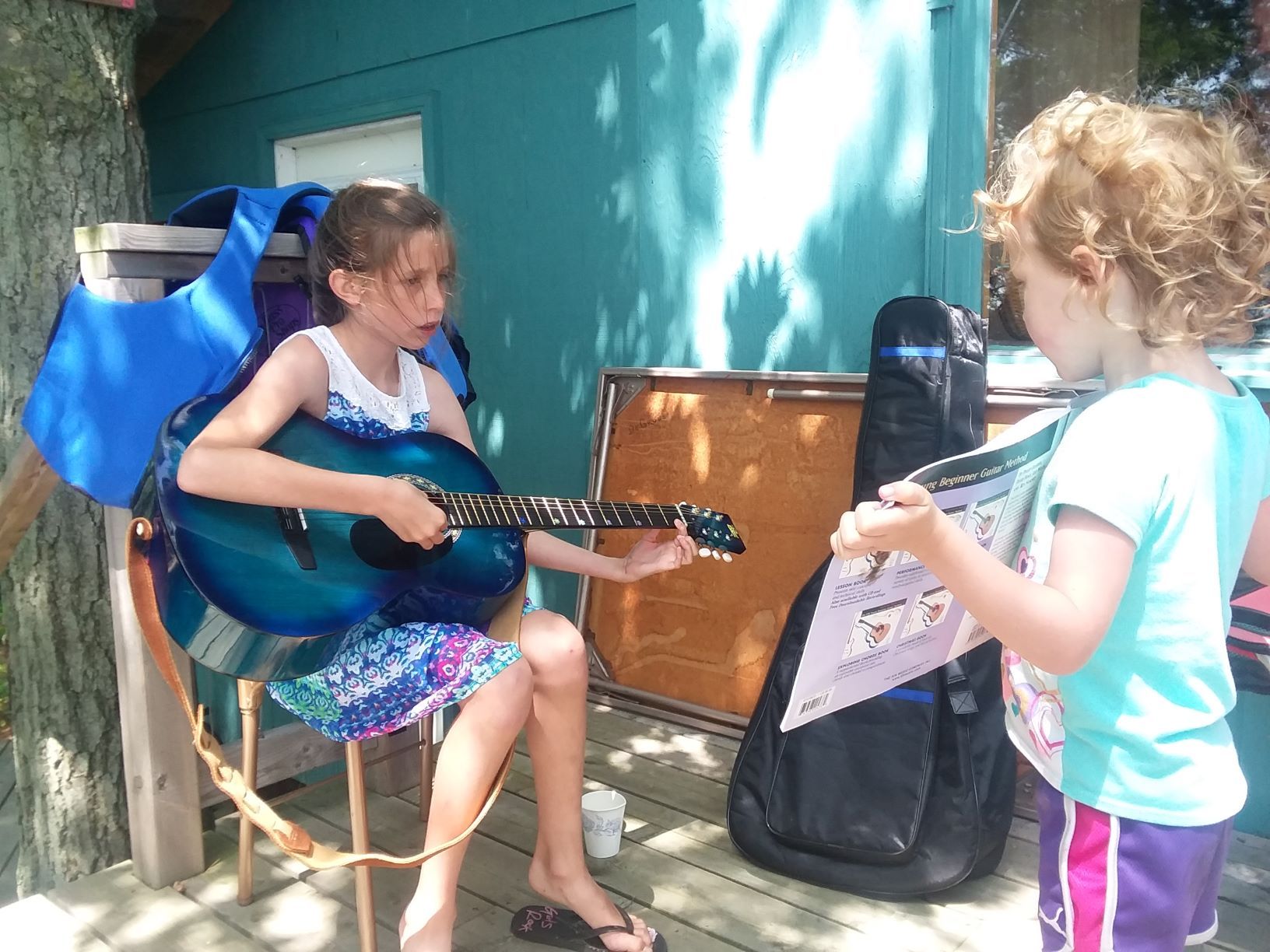
Skip would leave Syracuse, returning to his native New Hampshire to establish his own radio station while I was transferred to Mid America to another broadcasting facility. More years pasted with visits back to the 1000 Islands few and often rushed.
John Scott died in 2004, and Dick Bean died five years later. Shirley Bean was actually on Scobea when she passed in 2014. That left Phyllis as the surviving member of the quartet who bought Island 68-B now lovingly known as Scobea.
In 2008 there was a 40th anniversary celebration, with no question that Barb and I would attend. Old friends revisited, stories recalled and a moving twilight ceremony remembering those who were no longer with us saw candles on chips of bark float away from the island in silent memory.
The 50thAnniversary celebration was organized by the Scott’s oldest daughter Lauri. My wife of nearly 52 years had passed in 2011 following a battel with lung cancer, we were there together for the 40th, I would be there for the 50th.
Saturday, the day of the event, dawned cool and bright with a brisk wind, typical of the islands. A cell phone call to Lauri brought pontoon transport to Scobea from the Canadian mainland to the island I fondly remembered.
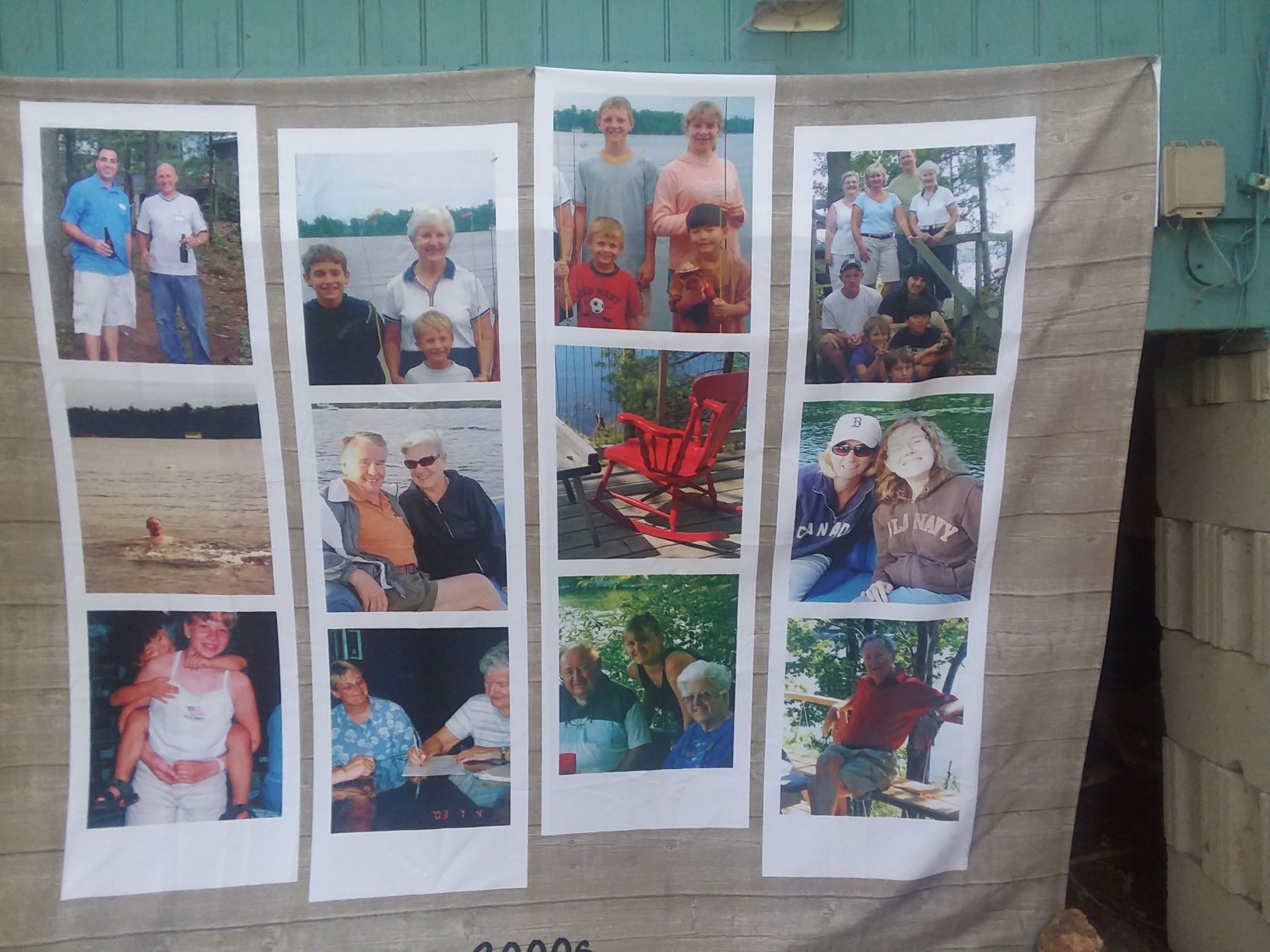
Lauri had printed photos of the past years on large cloth panels leading from the dock to the center of the island. I was pleased to see one photo of myself and Barb from the 40th celebration. The sun shone bright while laughter, tears and embraces filled the island as more and more guests arrived.
It was a wonderful day. Kids in and out of the water, music, lots of food, drink and memories shared. As evening neared, we all gathered at water’s edge and offered prayers for those who had gone before. It ended all too soon.
I’m sure there will be more celebrations on Scobea. What began on a rainy Saturday in 1968 has become a touchstone for two families enjoying the enchanted place we all know as the 1000 Islands. Hope I’m still around for the 60th.
By Deane C. Parkhurst
Deane C. Parkhurst: Deane was born on June 8th 1934, in New Jersey. He writes; “So-so grades in school, endured ten months of the year in NJ, happy at TIP for two. In college, ‘majored’ in the college radio station instead of class. Drafted into the Army in 1957 and served two years in the Signal Corps.” He worked in commercial radio and television in New York State until moving to Mid America. He completed his career selling high end computer systems to media companies, retiring in 2005. Deane has written three other articles for TI Life. In August 2013, Deane wrote Remembering TI Park and the Hurricane of ‘38 , in September 2014, he wrote, “You Can’t Go Home Again!” (Or Can You?) and in February 2016, he wrote, “Rocks in The River. Today Deane lives in Olathe, KS, on the border of Kansas City, MO. He writes, “Living in the Kansas City area has been great, it's just so hard to find ocean front property.”

